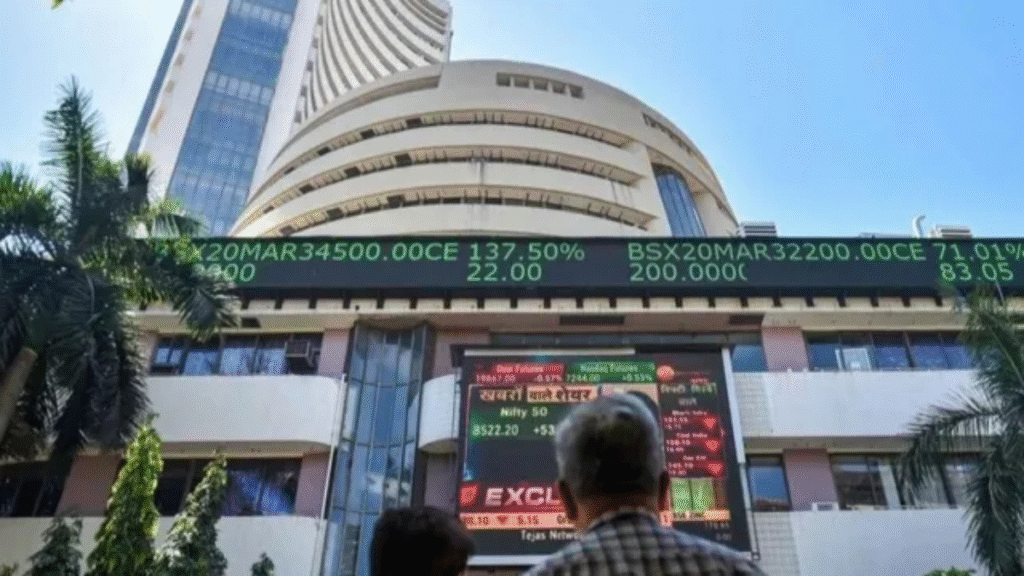Now Reading: Indian Capital Markets Roiled as SEBI Mulls Linking Options Leverage to Cash Exposure; BSE Stocks Plunge 7%
-
01
Indian Capital Markets Roiled as SEBI Mulls Linking Options Leverage to Cash Exposure; BSE Stocks Plunge 7%
Indian Capital Markets Roiled as SEBI Mulls Linking Options Leverage to Cash Exposure; BSE Stocks Plunge 7%

The Indian capital markets witnessed a significant upheaval today, with key indices and capital market stocks taking a severe hit. The Bombay Stock Exchange (BSE) saw a sharp decline of 7% in its capital market segment, as reports surfaced that the Securities and Exchange Board of India (SEBI) is contemplating stricter norms that could directly link options leverage to an investor’s cash market exposure. This potential regulatory shift, aimed at curbing excessive speculation and fostering a healthier derivatives ecosystem, has sent jitters across trading floors and brokerage houses.
The proposed changes come amidst SEBI’s ongoing efforts to rein in the burgeoning, and often highly leveraged, futures and options (F&O) market in India. The regulator has been increasingly concerned about the high number of retail investors incurring substantial losses in this segment, with recent data indicating that a staggering 91% of individual traders in equity F&O lost money in FY25, amounting to a collective loss of approximately INR 1.06 lakh crore.
While the precise details of the new leverage rules are yet to be formally announced, market participants are bracing for an environment where the ability to take highly leveraged positions in options may be significantly curtailed if not backed by a commensurate cash market presence. This move is seen as a direct response to the prevalent practice of traders taking large speculative bets in options with minimal upfront capital, often leading to amplified losses when markets move unfavorably.
The impact of this potential regulatory tightening was immediately evident on the BSE, where stocks of exchange operators, brokerage firms, and other capital market intermediaries witnessed sharp declines. Companies like BSE Ltd., Nuvama Wealth Management, and Angel One saw their share prices plunge by as much as 7% or more. This reaction is largely attributed to fears that reduced leverage could lead to a significant drop in F&O trading volumes, thereby impacting the revenue streams of these market players.
Sources indicate that SEBI’s intent behind these potential reforms is multifaceted:
- Risk Mitigation: By linking options leverage to cash exposure, SEBI aims to reduce systemic risk and protect retail investors from taking on excessive debt that could lead to significant financial distress.
- Discouraging Speculation: The move is expected to deter purely speculative trading in the F&O segment, encouraging a more balanced approach to market participation.
- Aligning Derivatives with Cash Market Liquidity: There is a strong push to ensure that the derivatives market does not become disproportionately large or detached from the underlying cash market’s actual liquidity and delivery volumes. SEBI has already introduced changes to the Market-Wide Position Limit (MWPL), linking it to the lower of 15% of free-float shares or 65 times the average daily delivery value, effective from October 1, 2025.
- Enhancing Market Integrity: The regulator is keen on curbing any potential for market manipulation that can arise from highly leveraged positions. Recent regulatory actions, such as the interim order against US-based quant firm Jane Street for alleged index manipulation, underscore SEBI’s resolve in this regard.
It is important to note that SEBI has already introduced several reforms in the F&O segment over the past year, including a delta-based approach to measuring open interest (Future Equivalent Open Interest or FutEq OI), increased contract sizes for index derivatives, and stricter position limits for various categories of investors. These measures, some of which are already in effect or will be implemented by October and November 2025, are designed to create a more robust and transparent derivatives ecosystem.
While the market is currently experiencing a period of volatility and uncertainty in response to these anticipated changes, industry experts suggest that in the long run, such reforms could lead to a more stable and mature capital market. The focus is shifting towards responsible trading and safeguarding investor interests, even if it means a temporary dip in trading volumes for certain segments. Investors and market participants are now keenly awaiting further clarifications and the final framework from SEBI regarding the proposed options leverage rules.










